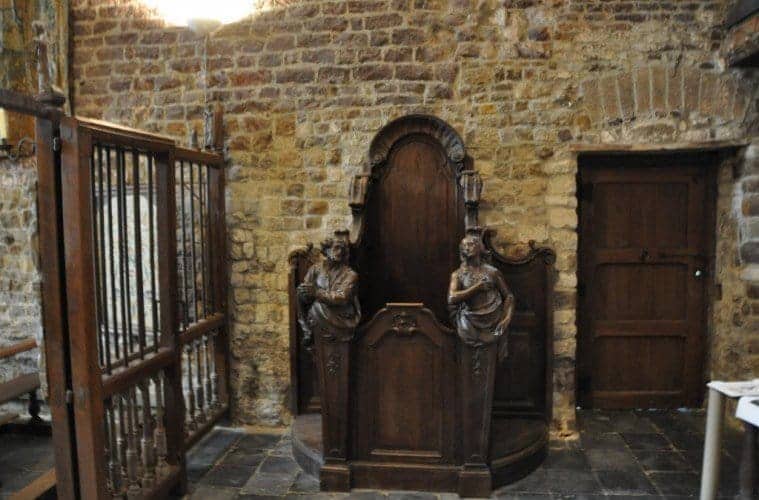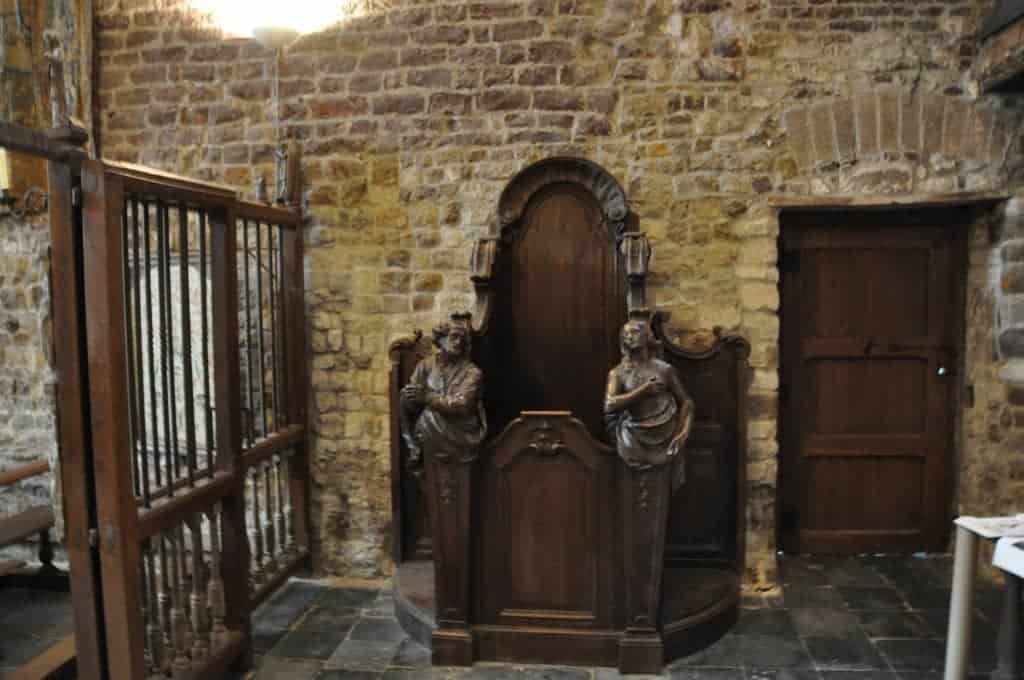There are a handful of parishes here in Milwaukee that offer wide availability to the Sacrament of Penance. I consider “wide availability” to be, at a minimum, daily confession for thirty minutes before each Mass, including an hour or two on Saturdays. Sadly, this sacramental schedule can only be applied to a small number of parishes, which leads many Catholics to conclude that confession isn’t that big a deal. Some parishes offer confession by appointment only, and many more just for a short amount of time on Saturday mornings or afternoons. If confession is hardly ever available or hardly ever preached about from the pulpit, can you blame so many Catholics for concluding that it is really not that important?
The Catechism says a lot about the Sacrament of Penance. Here’s just one excerpt:
Christ instituted the sacrament of Penance for all sinful members of his Church: above all for those who, since Baptism, have fallen into grave sin, and have thus lost their baptismal grace and wounded ecclesial communion. It is to them that the sacrament of Penance offers a new possibility to convert and to recover the grace of justification. The Fathers of the Church present this sacrament as “the second plank [of salvation] after the shipwreck which is the loss of grace.”47 (Catechism of the Catholic Church, 1446)
I don’t think it’s an exaggeration to claim that, among the seven sacraments, the two that have been most under-valued during the past forty years in the United States are the Eucharist and Penance. Why is that? I am always struck by the reality of observing parishes where times for confession are extremely limited and yet, in spite of this, everyone regularly receives Communion. I recall a visit to Poland, where the sacramental scene is much different. Confession lines were always very long, and it was not just the grandmas and grandpas in line. Scores of young Catholics queued up to confess their sins. It was quite moving, in the most positive sense, to observe this. But here in the U.S., confession has suffered immensely. Surely, this fact can be traced at least in part to Protestant influences in the Church. Many people sincerely believe they have a direct line to God’s mercy, and see no need to confess to a priest. Also, the concept of personal sin has been heavily undermined in our culture, which Benedict XVI rightly described as existing under a “dictatorship of relativism.” Who’s to say this or that is a sin, so long as it is freely chosen and doesn’t hurt anyone else?
Another reason is the understandable reluctance, fear even, that many have when it comes to confessing actions or thoughts that are deeply embarrassing. Let’s be honest, it’s not fun, but then again, neither is life-saving surgery or a root canal. Medical procedures like open-heart surgery are never described as “a walk in the park” by doctors performing them or by patients receiving them, but both know how necessary they are. Who would avoid receiving such vital treatment only out of fear of pain? Any true friend would tell such a person that, while the worry is understandable and the discomfort real, it would be foolish to avoid treatment on that basis alone. How much more important is the spiritual surgery we are so desperately in need of! (And the good news is that we don’t need expensive insurance for this soul-saving treatment. Christ already paid the heavy price.) Pope Francis has eloquently reminded us that the shame we feel over sins committed is, in fact, a healthy sign of humility and that we are on the road to full repentance and reconciliation with God. Truth be told, there’s very little, if anything, that a priest who regularly hears confessions hasn’t already heard many times, so we shouldn’t think we’ve done something so unique that he’s going to be blown away. Chances are, he’s heard it before, over and over and over. When it comes to sin, thanks to our common, fallen nature, it’s hard to be original. I’ve experienced time and again that the peace I receive through confession far outweighs any sense of shame or worry. But it does take courage and trust.
So let’s hope we see more priests offering more generous times for confession. As Pope Francis has reminded his priests, if the light is on, people will show up.
When someone is in line for confession he feels all these things – even shame – but then, when he finishes confessing, he leaves (feeling) free, great, beautiful, forgiven, clean, happy. ~Pope Francis



